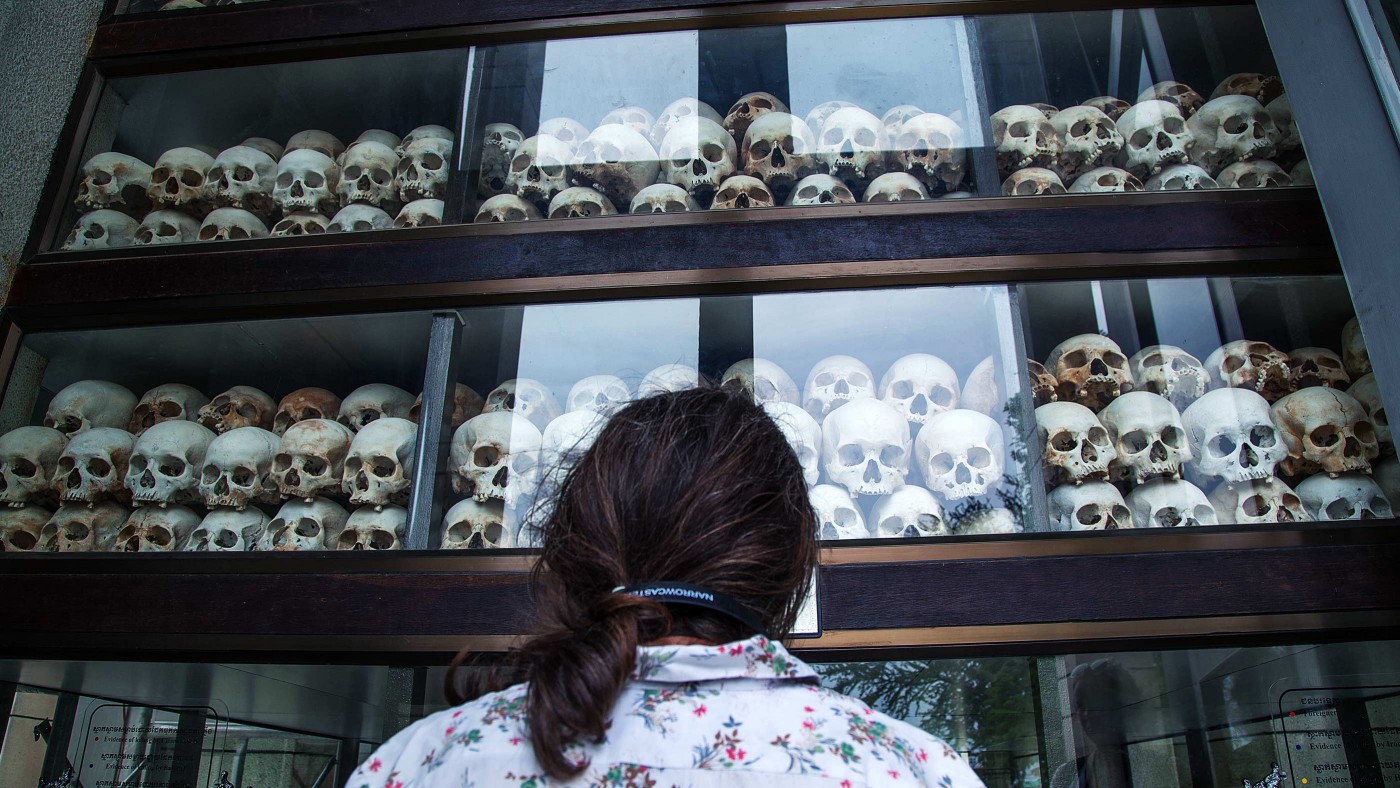A hundred years ago next week, Talaat Pasha, the Ottoman Interior Minister, ordered the deportation of 250 Armenian intellectuals from Constantinople to the Anatolian interior. The date of their arrest, 24 April, has been marked ever as the beginning of what Armenians call “Medz Yeghern”: the Great Crime. Depending on whose estimate we take, anywhere between 600,000 and 1.5 million men, women and children died in camps and on forced marches as central Turkey was emptied of its Armenian population.
Armenians have campaigned ever since to have the deaths classified as genocide. Turkey, while acknowledging that there were hundreds of thousands of civilian casualties, rejects the label, arguing that the tragedy was caused by callousness, maladministration and bandit raids on poorly-guarded columns rather than being a planned project of elimination.
What’s in a name? The Turkish authorities can be neuralgic about the use of the g-word – which some other governments use, and some don’t. There was a diplomatic incident at the weekend when Pope Francis became the latest head of state to employ the term. Yet the question strikes me as semantic more than historical.
No one, not even the flintiest Turkish nationalist, denies that huge numbers of guiltless Armenians lost their lives in 1915. Last year, on the eve of the 99th anniversary, the Turkish leader Recep Tayyip Erdoğan spoke of “our pain” at the “inhumane” policy of relocation, and expressed his condolences to the descendants. Equally, no one, not even the most hardline diaspora Armenian, denies that some of the fallen died in Tsarist uniforms, having thrown in their lot with invading Russians.
The question of whether the term “genocide” is correct should perhaps be referred to lawyers rather than historians. The latest lawyer to opine on the subject is Geoffrey Robertson who, in a new book, argues that the events of 1915 plainly fall under the definition of genocide in international law, and indeed that the Armenians were specifically in the mind of the man who first defined genocide as a crime, namely the Polish jurist Raphael Lemkin. Robertson is arguing a brief, as barristers are supposed to do; he isn’t trying to present a balanced account of the events in question. None the less, he makes an important point, which I hadn’t previously appreciated, namely that genocide, under international law, doesn’t require an intention to annihilate an ethnic group, simply a policy of treating people prejudicially on racial or sectarian grounds in a manner that is likely to cause them severe harm.
If he is right – and he’s the lawyer, not me – all sorts of events fall under that definition. Not just the massacres in Bosnia and Rwanda, but the relocation of Native American tribes, the transatlantic slave trade, the barbarities carried out in the Belgian Congo, the inter-communal violence that accompanied India’s partition, Stalin’s deportations, the expulsion of the East African Indians and, not least, the ethnic cleansing of the long-settled German communities of Eastern Europe in and after 1945.
Almost no one asks for this last to be recognised as a genocide, even though hundreds of thousands of civilians died on forced marches and in attacks. Which brings me to a hard thing that needs saying: we cannot add to or subtract from the value of a single life by posthumous reclassification. The Volksdeutsche, the Armenians, the Cherokee, the Tutsis: all suffered abominable tragedies. All were victims of the same wickedness, one that condemns people by category, so that the actions or inactions of an individual are no defence. Does calling their treatment a genocide make things any better? I can’t see how.
It may make a difference if the perpetrators are still alive. Genocide, being a crime against humanity, is in a different legal category from murder. In the case of the Armenians, though, there is no one left to punish. More than that, the state whose officials were responsible no longer exists. When the Republic of Turkey was proclaimed, the Ottoman Empire was dissolved. One of the many crimes with which Atatürk charged the Young Turks, including Talaat, was the mistreatment of their Armenian subjects.
Whatever we call it, the Medz Yeghern is now acknowledged the world over as a monstrous tragedy – including, these days, in Turkey. To that extent, the campaigners, both in Armenia and in the diaspora, have done their job. What matters now, surely, is for Turkey and Armenia, whose relations have thawed slightly, to move to full normalisation – something from which both stand to gain enormously.
None of this is to say that the dead should be forgotten; but if we must disinter them, let us do it in the manner of an archaeological dig, with patient brushwork. They deserve better than to be dragged into the unrelated arguments of our own age. They have suffered enough.


